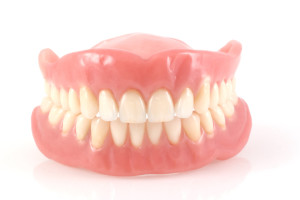What Is Prosthodontics?
Prosthodontics is the branch of dentistry dealing with the replacement of missing/lost teeth with artificial material i.e. a single missing tooth, several missing teeth or the entire set of upper and/or lower teeth. A Prosthodontist is the person who specializes in replacement of teeth.
Why Is It Important To Replace Lost Teeth?
Lost teeth need to be replaced, or the results can be severe.
- Chewing and general health can be affected.
- The appearance of the front teeth and the smile can deteriorate.
- Teeth adjacent to spaces may drift and tilt into them.
- Teeth in the opposite jaw, over the space can grow bigger because there is no opposite tooth to bite against, and keep it in place.
- The front teeth can be forced forward.
What Are The Methods Of Replacing Missing Teeth?
The methods of replacing teeth are determined by the position of the gap, its size and the presence or absence of adjoining teeth.
(a) removable denture
(b) complete denture/ full denture/ false teeth
What Are Full Dentures?
Full or complete dentures replace all the teeth in both jaws/ single jaw.

What Are Dentures Made Of?
The base of the denture is made of gum-colored acrylic, which is sometimes reinforced with metal for extra strength. The teeth are made of acrylic or porcelain.
What Are The Benefits Of Having Well-Constructed Dentures?
Dentures make it possible to eat comfortably and well. This is a prerequisite for a balanced diet. They will improve your appearance and will help to prevent lines and wrinkles from forming around the mouth and the cheeks from falling in. They will allow you to speak normally. Dentures will help to maintain the correct alignment between the upper and lower jaws, and prevent jaw joint problems.
Will I Feel Good With My New Dentures?
Replacing unsightly diseased teeth will help you feel good about yourself. You can expect your dentures to look natural, unobtrusive and attractive.
Will It Be Difficult To Get Used To New Dentures?
It is common for dentures to look and feel good right from the start, some adjustment and learning will be necessary before chewing is comfortable. Initial difficulties with speech are usually short lived. Tell your dentist if you have problems with “s” sounds or with “whistling”. Painful red spots caused by pressure of the denture may appear.
How Can I Take Care Of Dentures?
Dentures should be cleaned regularly and thoroughly every day. This will prevent the buildup of plaque, stains and food debris that can stick to the dentures. Dentures should be cleaned with a soft nail brush or a special denture brush, using a mild soap or a special denture tooth paste. They will freshen the denture. Brush all over the denture, not only around the teeth. Always brush over a basin filled with water or over a damp cloth, as dentures are easily broken if dropped on a hard surface. Chemical denture cleaners are also available. These include soaking solutions, creams or pastes. It is important not to let the dentures dry out when they are out of the mouth as they may change their shape. Keep them in water or in a soaking cleanser solution. Your dentist may advise you to give the mouth tissues a rest by taking your dentures out at night before going to bed.